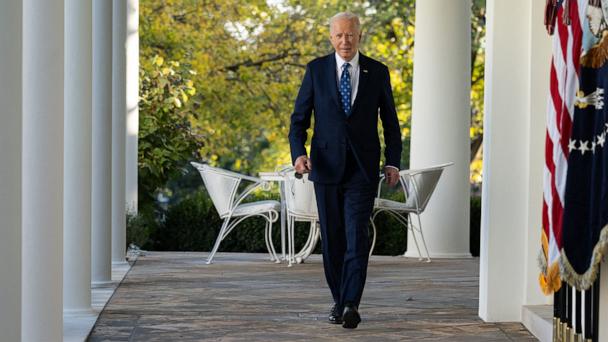Biden weighs preemptive pardons for Milley, Cheney, Fauci: Source

President Joe Biden and his senior aides are discussing possible preemptive pardons for people who might be targeted by the incoming Trump administration, according to a source close to the president.
Possible names include current and former officials such as retired Gen. Mark Milley, former GOP Rep. Liz Cheney, Sen.-elect Adam Schiff and Dr. Anthony Fauci.
Politico was first to report the news.
The consideration comes after Biden issued a full pardon for his son, Hunter Biden, on Dec. 1. The move sparked backlash from Republicans and criticism from many Democrats.
The White House said Biden did so, despite his past pledges not to pardon his son, because "it didn't seem his political opponents would let go of it."
Throughout his campaign, President-elect Donald Trump vowed to exact "retribution" on his political enemies.
Milley, who retired as chairman of the Joint Chiefs of Staff last year, has long been a target of Republican attacks over the withdrawal of troops from Afghanistan.
He also stoked Trump's ire over a report that Milley secretly called his Chinese counterpart before and after the 2020 election to dispel China's fears Trump was not planning an attack. Trump accused Milley of "treason" after the report.
Cheney and Schiff have also long been criticized by Trump over their investigation into the attack on the U.S. Capitol by a pro-Trump mob on Jan. 6, 2021. The two were part of the House Jan. 6 committee's yearlong probe, which concluded with the recommendation of criminal charges against Trump. Schiff also was the lead House prosecutor in Trump's first Senate impeachment trial.
Cheney lost her reelection bid in 2022 to a Trump-backed Republican challenger. Cheney endorsed Vice President Kamala Harris over Trump, and appeared with Harris several times on the campaign trail.
Schiff is now the senator-elect from California after winning the seat held by late Sen. Dianne Feinstein in November.
Fauci, the former head of the National Institute of Allergy and Infectious Diseases, faced intense scrutiny over the government's response to the COVID-19 pandemic.
He's been called to Capitol Hill to testify on school shutdowns, the virus' origins and more by House Republicans since retiring in 2022.







